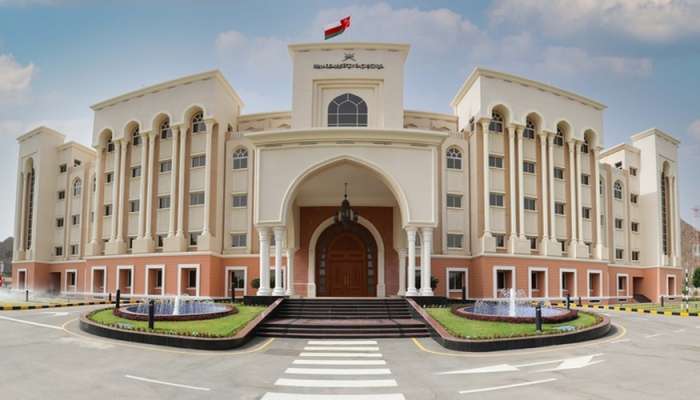Oman Strengthens Oversight to Safeguard Public Funds and Promote Transparency

The State Audit Institution (SAI) of Oman has intensified its efforts to enhance transparency, combat corruption, and ensure the responsible management of public funds. Playing a crucial role in governance, the SAI aligns its initiatives with Oman Vision 2040, reflecting the country’s commitment to sustainable development and financial accountability.
Strengthening Financial Oversight and Compliance
The SAI is tasked with overseeing financial and administrative transactions related to state-owned funds and government-supervised entities. It ensures compliance with the regulations outlined in the State Financial and Administrative Audit Law, issued by Royal Decree No. 111/2011. By meticulously monitoring entities under its jurisdiction, the institution upholds financial discipline and administrative integrity, contributing to Oman’s broader goals of good governance.
Dr. Hamir bin Nasser Al Mahrouqi, spokesperson for the SAI, emphasized the significance of the institution’s mission, stating: “To fulfill our role and achieve the objectives set forth in Oman Vision 2040, we are directing all our resources toward comprehensive financial oversight. This includes accounting, legal aspects, and administrative and performance audits.”
Combatting Corruption and Enhancing Institutional Efficiency
In addition to financial monitoring, the SAI actively audits accounts of government entities, detects financial violations, and ensures investments adhere to legal frameworks. The institution’s approach is rooted in preventive oversight, preventing conflicts of interest, and addressing financial and administrative violations before they escalate.
“Our efforts have led to the recovery, collection, and financial savings, in addition to improving institutional performance. These achievements are highlighted in our quarterly community summaries, which demonstrate the added value of the institution’s work,” Dr. Al Mahrouqi stated.
National and International Collaboration
The success of the SAI’s initiatives is largely attributed to national cooperation. The institution collaborates with various government agencies through joint committees, cooperation programs, and regular meetings to improve coordination and streamline procedures. These efforts ensure the optimal use of national resources and facilitate the efficient implementation of regulations.
At an international level, Oman remains committed to fostering partnerships with global organizations focused on integrity and anti-corruption. The SAI actively engages with the United Nations Office on Drugs and Crime (UNODC) and the Secretariat of the Conference of the States Parties to the United Nations Convention against Corruption.
“The SAI participates in technical committees, benefits from international publications, and actively monitors reports and indicators from these organizations. We analyze these insights to develop plans to improve Oman’s standing in global anti-corruption initiatives,” Dr. Al Mahrouqi explained.
Progress in Global Anti-Corruption Rankings
Oman’s dedication to enhancing transparency and combating corruption is evident in its significant improvement in the 2024 Corruption Perceptions Index. The country climbed 12 points and 20 places to secure the 50th position globally, underscoring the effectiveness of the SAI’s initiatives and government collaboration.
Dr. Al Mahrouqi credited this progress to the nation’s adoption of international best practices and continued legal reforms. “We are committed to strengthening the efficiency of our institutions and protecting public resources through comprehensive audits and the adoption of international standards,” he added.
A Strategic Approach to Governance and Auditing
The SAI’s efforts are guided by a meticulously planned annual strategy, which follows a risk-based approach to prioritize significant financial and administrative concerns. This strategy enables the institution to address audit observations, propose corrective measures, and take legal action in cases involving financial misconduct.
In line with regional and international agreements, including the United Nations Convention against Corruption, the SAI plays a vital role in implementing Oman’s National Plan to Promote Integrity. It also fosters awareness of the Code of Conduct for Civil Servants, encouraging transparency and ethical governance through public reporting and community engagement.
“The publication of our community summaries, along with the receipt of complaints and reports, highlights our commitment to transparency and public partnership. We are also utilizing legislative tools, such as financial disclosure by government officials, to further strengthen our efforts to secure public funds,” Dr. Al Mahrouqi said.
Looking Ahead: Oman Vision 2040
Dr. Al Mahrouqi emphasized that these initiatives are aligned with Oman Vision 2040 and the nation’s broader aspirations under the leadership of His Majesty Sultan Haitham bin Tarik.
“The collective efforts of government agencies, the SAI, and the broader community play an essential role in ensuring that Oman continues to make progress toward its long-term goals of financial sustainability and good governance,” he concluded.
As Oman continues to strengthen its financial oversight and governance mechanisms, the SAI’s proactive approach is poised to enhance institutional efficiency, safeguard public funds, and foster a culture of transparency and accountability across the nation.


